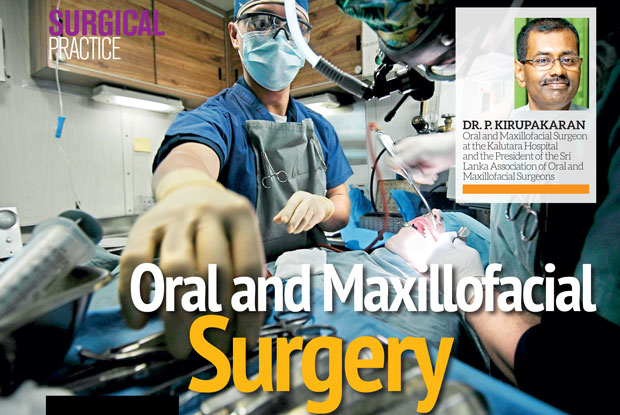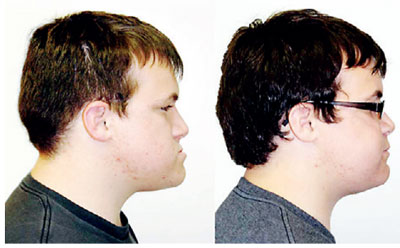Reply To:
Name - Reply Comment

 Dr. P. Kirupakaran, Oral and Maxillofacial Surgeon at the Kalutara Hospital and the President of the Sri Lanka Association of Oral and Maxillofacial Surgeons said “Oral and Maxillofacial Surgery (OMS) specializes in treating diseases, injuries and defects in the oral and maxillofacial regions.
Dr. P. Kirupakaran, Oral and Maxillofacial Surgeon at the Kalutara Hospital and the President of the Sri Lanka Association of Oral and Maxillofacial Surgeons said “Oral and Maxillofacial Surgery (OMS) specializes in treating diseases, injuries and defects in the oral and maxillofacial regions.
‘Maxillofacial’ refers to the upper and lower jaw. Thus, this practice includes treatment of the mouth, both jaws and the face. OM surgeons are qualified in dental surgery and receive special training in maxillofacial surgery.”

Speaking of when people go to an OM surgeon he said, “Usually patients are referred from dental surgeons, as they are the primary qualified people. When it comes to birth defects, patients are referred from paediatricians. Likewise, when there could be cancers and other diseases, they are referred from other specialities and we treat them.”
Dr. Kirupakaran further said that many patients came in with birth defects. “One of the more common birth defects seen is cleft lip. Some babies are born with a separated lip or separated roof of the mouth called the cleft palate and they need special care from childhood to adulthood, so we manage them. Likewise, there are many defects we treat but the cleft lip and cleft palate are the most common ones. Some people are born with a small mandible, meaning that the bottom jaw is smaller than usual. Sometimes one side of the patient’s face doesn’t develop properly. Such defects are treated by an oral and maxillofacial surgeon.”
He said oral cancer was among the diseases he most commonly saw in patients.“Oral cancer is one of the most fatal diseases in our part of the world. In Sri Lanka, oral cancer is the number one killer among cancers. It affects the health system badly. At the Kalutara Hospital, we see about 3 or 4 new cases per week. What we do is remove the lesion and the patient is left with a deformity which should be surgically corrected at once or later on. Sometimes, surgery may not be adequate and they will be sent for radiotherapy or some other treatment, so they will be referred back to us in order to manage any complications arising from this. Such complications include dry mouth, problems with cheeks, gums or ulcers.”

Speaking of the distribution of oral and maxillofacial surgeons in the country, he said, “there are Oral and Maxillofacial surgeons in all the major hospitals and in the future we hope to cover all the small hospitals as well. We do special training and trainees have to qualify through an exam. Now we have enough people so we are trying to cover all the general hospitals, district general hospitals and some of the village hospitals. Some areas such as Puttalam do not have an OM surgeon, so patients will have to go to Chilaw. There are some other areas that are in a similar situation. But we are training people in order to cover these areas so our surgeons can visit other hospitals.”
Dr. Kirupakaran further explained how awareness of this practice was spreading in Sri Lanka. “We recently celebrated International Oral and Maxillofacial Surgery Day that is celebrated worldwide on February 13. We had a media function on February 8 and on the 13th we celebrated it at the National Dental Institute in Colombo. There was an exhibition and a blood donation. The exhibition was held for schoolchildren as well. We have also conducted small functions island-wide where we distributed pamphlets in order to create awareness on the matter.”